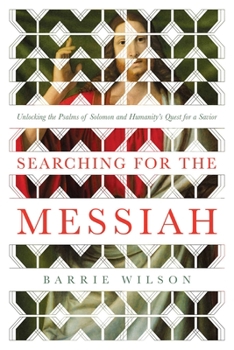Searching for the Messiah: Unlocking the Psalms of Solomon and Humanity's Quest for a Savior
Select Format
Select Condition 
Book Overview
Over the centuries, people have longed for a messiah, whether a religious figure such as Jesus, a political leader, or even in popular culture. The messianic quest emerges most acutely during difficult times when people experience a sense of powerlessness and desperation.
But the concept of a messiah--a savior--has its root in the writings of ancient Judaism and early Christianity, evolving from an anointed leader to universal savior. Wilson turns to a little understood pre-Christian text, The Psalms of Solomon, which set the stage for messianic expectation just prior to the birth of Jesus.
Known today only to a handful of scholars--in marked contrast to the "Song of Solomon"--this apocryphal text was composted not by a King, but by a devout 1st century b.c.e. Jew who witnessed terrible atrocities under brutal Roman rule. As Wilson parses the text and its subsequent interpretations, we learn how Jesus himself directed his followers inward to search for "the messiah within" in his parables. We then learn how Paul's concept of "the messiah," or "the Christ," changed when presented to Gentiles instead of Jews. Jesus was no longer a Jewish messiah but a Hellenistic divine avatar.
In Searching for the Messiah, Wilson reveals how this collective search for messiahs throughout modern human history has been fundamentally flawed. Jesus himself rejected the idea of an external fixer, instead formulating his teachings to focus on the role of the individual and their choices. Searching for the Messiah is revelatory and illuminating work of scholarship that will challenge and inspire.





